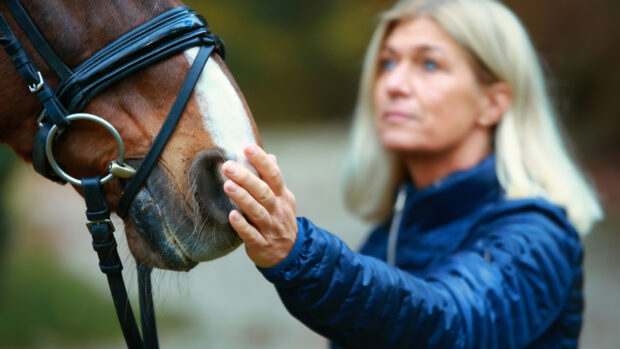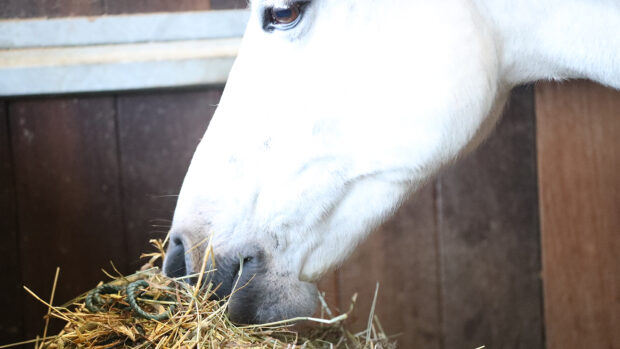 Hannah Dyball of VioVet, the UK’s top-rated online retailer of horse and pet food medication and supplies, explains the pitfalls some unsuspecting new pet owners have fallen into with the increase in online advertising of pets for sale.
Hannah Dyball of VioVet, the UK’s top-rated online retailer of horse and pet food medication and supplies, explains the pitfalls some unsuspecting new pet owners have fallen into with the increase in online advertising of pets for sale.
You may have experienced the excitement of owning a new puppy — of welcoming a cuddly companion into your home. Maybe you have always dreamt of a dog but never found the right breeder or, if you have, the breeder has been too expensive.
Then you glimpse an online advertisement offering a pedigree puppy in exchange for the latest mobile phone. Not usually fooled by too good to be true offers, you are sceptical, but cannot ignore the temptation of a puppy. Seeing that the animal is well cared for by the glossy photo attached to the ad, you promptly arrange to collect it from the seller and go about preparing your home for the new arrival. Perhaps it is not a puppy you are getting, but rather a kitten or a horse.
So imagine your horror and disappointment when you discover that the perfect new addition to your family is actually ill, maimed or lame, or even in the late stages of pregnancy. You arrive to meet your pet, only to find it in a poor state of health, confined to a dirty crate with numerous other animals, malnourished and bearing signs of abuse. Maybe the pet you came for is missing a limb, is scarred, or has a deformity that wasn’t apparent in the photo. You want to back out of the deal but feel intimidated by the vendor, or obliged to take the scrawny creature away, protecting it from any further neglect. You hand over the phone, the watch, or the money and go on your way, with your ebbing pet in tow.
Unscrupulous breeders
This is just one of the regrettable scenarios facing those of us who purchase or exchange animals online. While it is unpleasant, it is not altogether surprising. Unscrupulous breeders offer up their animals for inanimate objects all the time, and the web is the avenue for doing it. The value of any pet in terms of its health and temperament would be reflected in its prize, so advertisements offering horses for “a quid” should be reported to the authorities and then not given a second glance.
Not only are adverts for ill or injured animals commonplace, but banned breeds, endangered species that have been illegally imported, and underage animals are frequently seen. Such indiscriminate advertising is dangerous and has proved so again and again, with animals being inappropriately re-housed, in many cases into homes that advocate dog-fighting or simply that do not have the relevant ownership licenses. These animals often go on to suffer poor treatment.
In other cases, loving homes and families are found for these animals — families that go on to suffer emotionally and financially because of the condition of the animal when it came to them.
A growing problem
Misleading advertising is becoming a growing problem, with an increasing number of people willing to exchange just about anything for the removal of an unwanted animal, or demanding extortionate prices to supply banned or exotic animals that may have been illegally imported. There are also adverts that will offer an exchange of, for instance, a golden retriever for a Chihuahua, or an animal for a technological device. Similarly, it is not uncommon to see puppies offered up before they are weaned. Other incidences of illegal sale include monkey, skunk and Arctic fox advertisements, adverts for “Zonkeys” (a zebra and donkey cross) and pit bull terriers (a banned breed), as well as other breeds banned under the Dangerous Dogs Act.
Up until now, monitoring of online animal advertisements has been fairly lapse. The Pet Advertising Advisory Group (PAAG)) was established in 2001 to try and curb appalling cases of animal exploitation in advertising, and has been working with “responsible, classified advertising sites” as a means of regulating the problem.
Prompted by some of the worst incidences of inappropriate advertising in recent years, the PAAG has launched a list of minimum standards that responsible websites should apply if they are advertising animals. This will help to ensure that any pets on their sites are shown and purchased in a way that is both legal and ethical, and will subsequently be better protected in their new homes. It will also ensure that new owners are not misled or stung with large veterinary bills because of the poor state of the pet when it arrives.
PAAG — protecting animals and purchasers
In order to spread the word about these standards, PAAG has been engaging with websites such as Loot, Gumtree and Preloved, as well as the general public to raise awareness of the issues and encourage more companies to adopt their minimum standards for responsible pet advertising.
Their approach considers 18 key areas, which can be read in their entirety at http://paag.org.uk/standards/ — the website offers useful information about the group and its motivation for developing the minimum standards, along with advice on purchasing a pet, be it a dog, cat, horse, rabbit or exotic animal.
Some of the issues covered in PAAG’s minimum standards include the use of automated checks, filtering inappropriate or “blacklisted” words, banning vendors that reoffend, as well as certain advertisements offering pregnant animals or animals for an exchange, encouraging websites to clearly specify species acknowledged by the Dangerous Wild Animals Act, and making it easy for purchasers to report suspicious adverts.
PAAG is working closely with Defra and is hoping that soon these standards will be endorsed by the Government, thereby reducing the number of animals that are missold every year, usually under false pretences, for exceptionally low or exceptionally high prices, to misinformed or unscrupulous purchasers, often with an injury, serious health complaint or behavioural problem.
In the interest of our animals, many websites are offering advice on appropriate advertising practices. Generally speaking, advertising is done correctly, and most of the advice being offered is simple common sense. Here is a list of factors PAAG recommends you bear in mind when advertising an animal online:
- Provide a clear, up-to-date photograph. The more photos you provide the better, as this will allow prospective purchasers to see the animal from every side and in different scenarios. Taking a photo of the animal indoors at rest and outside during play can be helpful in showing the health of the animal.
- Include all relevant information. For instance, if you are advertising puppies, provide their breed, sex, appearance and age as a bare minimum, being sure to state that puppies cannot be collected before they are 8 weeks old and suitably weaned.
- Clearly specify whether it is a private or commercial sale, or whether the animal is from a rescue centre.
- Give your location so that purchasers can decide whether they are prepared or able to travel the distance for collection.
- Provide any relevant information on health/vet checks. If you are advertising puppies, be sure to state whether they are 1) Kennel Club registered 2) micro-chipped 3) neutered, and how up-to-date their vet checks are.
- If you are advertising a horse, make sure you provide its height, age, breed, gender and colour. Where relevant, consider giving the horse’s registered name.
- A short, descriptive paragraph detailing any additional information can be very helpful. Be sure to detail the temperament of the animal, its compatibility with children and other house pets, its general health and any further information a purchaser might like to know.
When you are browsing for pets online, be sure to look out for these details in an advertisement. If these standards are met, chances are you are buying from a reputable breeder that has the best interests of their animals in mind. Your pet should arrive to you in a good state of health, ready to begin its new life in your home.
 For all the essentials you will need in caring for your new addition, VioVet offers a wide range of products for dogs, cats, horses, birds, reptiles and small animals. From leading brands of pet food, to prescription and non-prescription medications, and a great assortment of popular toys, accessories and training aids. Whether you are bringing home a puppy or a bearded dragon, VioVet online pet store offers a perfect product for you, whatever your needs, preferences and budget.
For all the essentials you will need in caring for your new addition, VioVet offers a wide range of products for dogs, cats, horses, birds, reptiles and small animals. From leading brands of pet food, to prescription and non-prescription medications, and a great assortment of popular toys, accessories and training aids. Whether you are bringing home a puppy or a bearded dragon, VioVet online pet store offers a perfect product for you, whatever your needs, preferences and budget.



